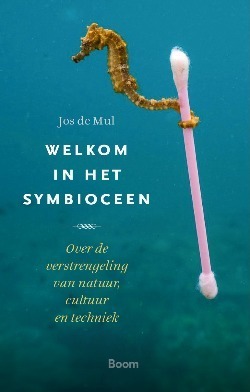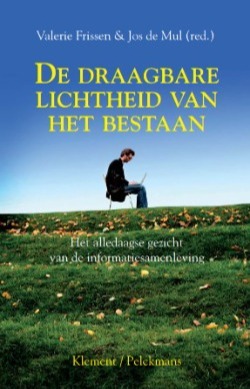Jos de Mul. Games as the True Organon of Philosophy. Playful ontologies: Schelling, Huizinga, Borges and beyond. In: Marco Accordi Rickards & Fabio Belsanti (Eds.) Homo Cyber Ludens. Bari: Idra Editing, 2021, pp. 97-124. Also availble as Kindle edition in Italian and English.
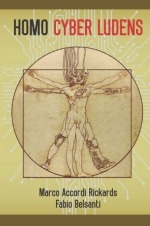 Introduction
Introduction
A playful specter is haunting the world. Since the 1960s, in which the word ‘ludic’ became popular in Europe and the US to designate playful behavior and artifacts, playfulness has increasingly become a mainstream characteristic of our culture. In the first decades of the 21st century, we can even speak of a global ‘ludification of culture’ (Raessens 2006). Perhaps the first thing that comes to mind in this context is the immense popularity of computer games (Frissen et al. 2015). But although perhaps most visible, computer game culture is only one manifestation of the process of ludification that seems to penetrate every cultural domain (Neitzel and Nohr 2006). In our present experience economy, for example, playfulness not only characterizes leisure time (fun shopping, game shows on television, amusement parks, playful use of computers, internet and smartphones), but also those domains that used to be serious, such as work (which should above all be fun today), education (serious gaming), politics (ludic campaigning), and even warfare (video games like war simulators and interfaces). According to Jeremy Rifkin “play is becoming as important in the cultural economy as work was in the industrial economy” (Rifkin 2000, 263). Postmodern culture as a whole has been described as “a game without an overall aim, a play without a transcendent destination” (Minnema 1998, 21). And according to sociologist Zygmunt Bauman, even human identity has become a playful phenomenon. In ludic culture, he argues, playfulness is no longer restricted to childhood, but has become a lifelong attitude: “The mark of postmodern adulthood is the willingness to embrace the game whole-heartedly, as children do” (Bauman 1995, 99).
As a result, the phenomena play and game have gained strong attention in the natural sciences, social sciences, and humanities. One can think, for example, of the implementation of game theory in biology (Sigmund 1993), economics (Von Neumann and Morgenstern 2007, Leonard 2010) and cultural anthropology (Bateson 1977, 1955). In addition to the increased interest in play and games in these already existing disciplines, in the last decades – motivated by the substantial growth of leisure time and the growth of ludo-industry and ludo-capitalism (Dibbell 2008), several new fields entirely devoted to the study of play and (computer) games have emerged (e.g. Raessens and Goldstein 2005, Fuchs et al. 2014).
How should we understand this ‘ludification of culture’? What does it say about our life and world view at the beginning of the 21st century? Today I will present an interpretation of this phenomenon of ludification with the help of two books - Friedrich Schelling’s System of transcendental Idealism [System des transzendentalen Idealismus] (1800) and Johan Huizinga’s Homo Ludens. A Study of the Play-Element in Culture [Homo Ludens. Proeve ener bepaling van het spel-element der cultuur] (1938) and one short story, Jorges Luis Borges’ ‘The library of Babel’[‘La biblioteca de Babel’] (1941). I will argue that these works, when we situate them in the context of the database ontology which characterizes our computer age, offer an illuminating outlook on the playful ontology that underpins the ludification of culture.
I will develop my argument in three steps. In the first two I will present some of the key ideas that can be found in respectively Schelling’s System of transcendental Idealism and Huizinga’s Homo ludens. I will discuss their shared romantic desire for immanent transcendence through aesthetization of the world, as well as their shared – and no less romantic - aversion toward modern technology. However, as I will argue in the third and last part of my talk, contrary to what both Schelling and Huizinga expected, precisely in modern information technologies the playful ontology they were after, is realized. Using ‘The Library of Babel’ (and also referring to playful simulations of this Library at the internet), this will lead me to the conclusion that the ludic turn of technology turns the computer game into the ‘true organon of philosophy’.
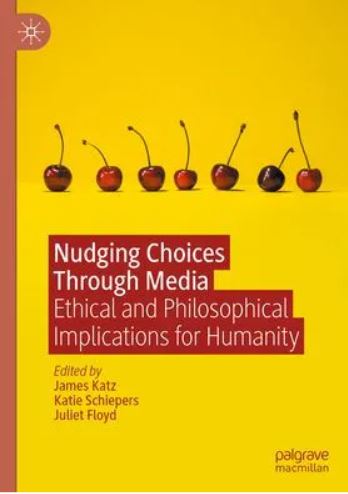





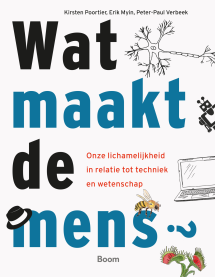 Het onderwerp van het centraal examen Filosofie voor het VWO 2024-2028 'de vraag naar de mens in relatie tot techniek en wetenschap. Een van de primaire teksten die behoren tot de examenstof is afkomstig uit
Het onderwerp van het centraal examen Filosofie voor het VWO 2024-2028 'de vraag naar de mens in relatie tot techniek en wetenschap. Een van de primaire teksten die behoren tot de examenstof is afkomstig uit 
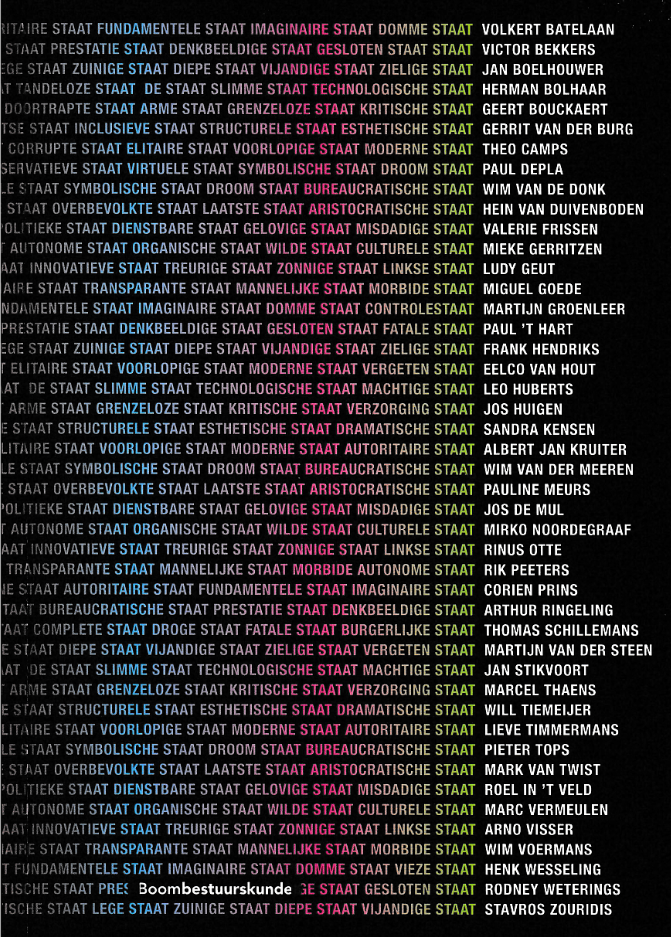 Soms roept een vriendenboek ook de spijt op bij een buitenstaander dat er zo zelden vijandboeken worden opgesteld. Nico Wilterdink
Soms roept een vriendenboek ook de spijt op bij een buitenstaander dat er zo zelden vijandboeken worden opgesteld. Nico Wilterdink
 Introduction
Introduction
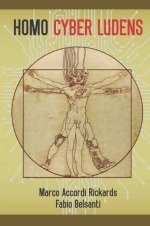 Uno spettro ludico si aggira per il mondo. Dagli anni '60, in cui la parola "ludico" è diventata popolare in Europa e negli Stati Uniti per designare comportamenti e oggetti inerenti il gioco, la ludicità è diventata sempre più una caratteristica fondamentale della nostra cultura. Nei primi decenni del XXI secolo si può persino parlare di una «ludificazione della cultura» globale (Raessens 2006). Forse la prima cosa che viene in mente in questo contesto è l'immensa popolarità dei videogiochi (Frissen et al. 2015). Ma sebbene forse più visibile, la cultura dei videogiochi è solo una manifestazione del processo di ludificazione che sembra penetrare in ogni dominio culturale (Neitzel e Nohr 2006). Nella nostra attuale economia dell’esperienza, ad esempio, la ludicità non caratterizza solo il tempo libero (shopping “divertente”, giochi televisivi, parchi divertimento, uso ludico di computer, internet e smartphone), ma anche quegli ambiti che un tempo erano seri, come il lavoro (che oggi dovrebbe essere soprattutto divertente), educazione (serious games), politica (campagne ludiche) e persino guerra (wargames digitali e simulatori virtuali di battaglie sul campo). Secondo Jeremy Rifkin, «il gioco sta diventando importante nell'economia culturale quanto il lavoro lo era nell'economia industriale» (Rifkin 2000, 263). La cultura postmoderna nel suo insieme è stata descritta come «un gioco senza uno scopo generale, un gioco senza una destinazione trascendente» (Minnema 1998, 21). E secondo il sociologo Zygmunt Bauman, anche l'identità umana è diventata un fenomeno ludico. Nella cultura ludica, sostiene, la ludicità non è più limitata all'infanzia, ma è diventata un atteggiamento permanente: «Il segno dell'età adulta postmoderna è la volontà di abbracciare il gioco con tutto il cuore, come fanno i bambini» (Bauman 1995, 99).
Uno spettro ludico si aggira per il mondo. Dagli anni '60, in cui la parola "ludico" è diventata popolare in Europa e negli Stati Uniti per designare comportamenti e oggetti inerenti il gioco, la ludicità è diventata sempre più una caratteristica fondamentale della nostra cultura. Nei primi decenni del XXI secolo si può persino parlare di una «ludificazione della cultura» globale (Raessens 2006). Forse la prima cosa che viene in mente in questo contesto è l'immensa popolarità dei videogiochi (Frissen et al. 2015). Ma sebbene forse più visibile, la cultura dei videogiochi è solo una manifestazione del processo di ludificazione che sembra penetrare in ogni dominio culturale (Neitzel e Nohr 2006). Nella nostra attuale economia dell’esperienza, ad esempio, la ludicità non caratterizza solo il tempo libero (shopping “divertente”, giochi televisivi, parchi divertimento, uso ludico di computer, internet e smartphone), ma anche quegli ambiti che un tempo erano seri, come il lavoro (che oggi dovrebbe essere soprattutto divertente), educazione (serious games), politica (campagne ludiche) e persino guerra (wargames digitali e simulatori virtuali di battaglie sul campo). Secondo Jeremy Rifkin, «il gioco sta diventando importante nell'economia culturale quanto il lavoro lo era nell'economia industriale» (Rifkin 2000, 263). La cultura postmoderna nel suo insieme è stata descritta come «un gioco senza uno scopo generale, un gioco senza una destinazione trascendente» (Minnema 1998, 21). E secondo il sociologo Zygmunt Bauman, anche l'identità umana è diventata un fenomeno ludico. Nella cultura ludica, sostiene, la ludicità non è più limitata all'infanzia, ma è diventata un atteggiamento permanente: «Il segno dell'età adulta postmoderna è la volontà di abbracciare il gioco con tutto il cuore, come fanno i bambini» (Bauman 1995, 99).
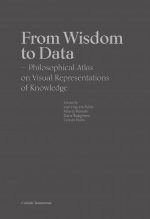 Alberto Romele: The first part of this dialogue is focused on the notion of imagination. It is from your work (to which I would add the work of Paul Ricoeur) that I have learned that (1) imagination is not creatio ex nihilo, but rather recombination and (2) imagination is always technologically (and digitally) externalized. I am thinking, for instance, of your 2009 article “The Work of Art in the Age of Digital Recombination”. Could you tell me a little bit more about your understanding of imagination, its relationship with technology, and the importance you attribute to authors like Kant, Dilthey, and Cassirer in your research?
Alberto Romele: The first part of this dialogue is focused on the notion of imagination. It is from your work (to which I would add the work of Paul Ricoeur) that I have learned that (1) imagination is not creatio ex nihilo, but rather recombination and (2) imagination is always technologically (and digitally) externalized. I am thinking, for instance, of your 2009 article “The Work of Art in the Age of Digital Recombination”. Could you tell me a little bit more about your understanding of imagination, its relationship with technology, and the importance you attribute to authors like Kant, Dilthey, and Cassirer in your research?
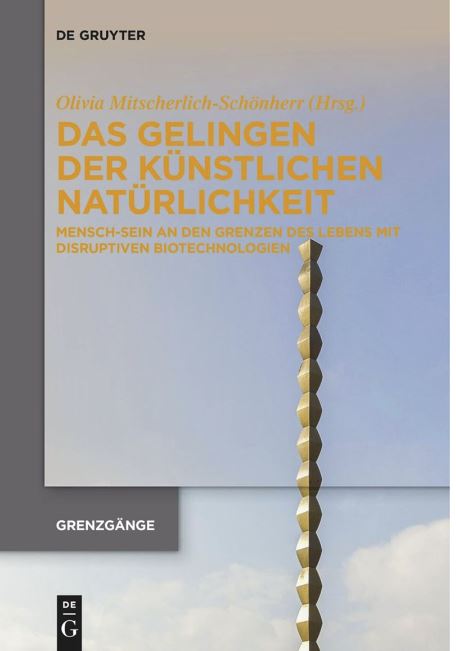



.gif) 商品基本情報
商品基本情報
 You can’t be a Real Country unless you have a beer and an airline—it helps if you have some kind of a football team, or some nuclear weapons, but at the very least you need a beer. Frank Zappa
You can’t be a Real Country unless you have a beer and an airline—it helps if you have some kind of a football team, or some nuclear weapons, but at the very least you need a beer. Frank Zappa
 Vanaf de derde druk verschijnt
Vanaf de derde druk verschijnt 